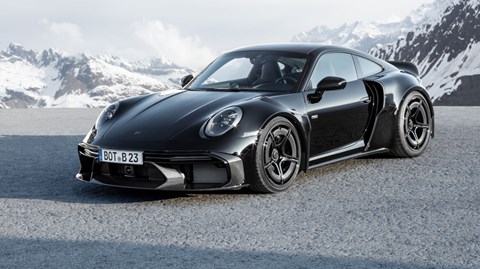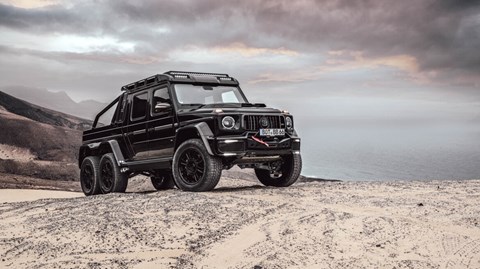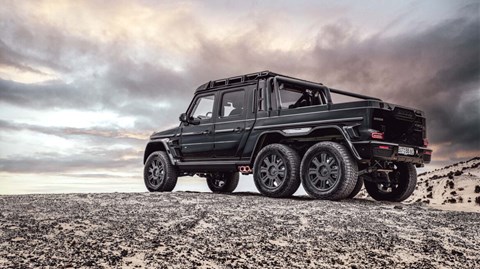► We speak to the CEO of Brabus
► Buschmann has pushed the brand into ever more diverse markets
► We explain Brabus’ ‘one-second-wow’ ethos
Constantin Buschmann’s life seems to be the stuff of dreams. Born into German tuning royalty as a result of his father founding Brabus, Buschmann was just 34 years old when he became the firm’s CEO and now lives the sort of glamorous, car-fuelled Insta-life that could make Lewis Hamilton jealous.
But as with every social-media profile, that element of the story is only skin deep. In reality, Buschmann has had to grow up fast. His father Bodo Buschmann, who owned the company for 41 years, died suddenly in 2018, leaving Constantin to deal with his grief and also plan a future for one of the most famous names in the tuning world.

The fact that we’re still talking about Brabus five years later shows that the plan came off. Buschmann has pushed the brand into ever more diverse markets, maintaining its heartland of tuning Mercedes-Benz and Smart while also morphing into motorbikes (in a tie-up with KTM) and even powerboats.
Brabus has always had a reputation for the extreme, but it’s clear that Buschmann is pushing it further. In 2022 the Crawler was unveiled, a bespoke off-road buggy for people with a lot of sand in their back garden. While riffing on Mercedes G-Class styling, it’s entirely a Brabus, with all the risks and rewards inherent in doing your own thing.
‘When you look at the company’s mission now, it is what we call a Brabus one-second-wow. Whether someone stands in front of a Brabus Rocket for the first time, or a Six-by-Six or Shadow 900, it’s very clear they are Brabus products. There’s a design language carry-over that works. They support your individuality.’

He’s unconstrained by the history of the brand. ‘There are a few more ingredients that we consider important for the recipe of creating a one-second-wow. And the interesting thing is what does it not contain? It does not contain a car, it does not contain four wheels. It does not contain a steering wheel. That’s given the company a new focus.’ In this new existence, just because Brabus didn’t do something in the past is no longer a reason why it won’t do it in the future.
‘Customers were coming to us and saying, “I love your cars. I know your sales guy. I have a 911 – please can you work on it.” We always said no because we work on Mercedes-Benz. And I thought is there a reason we’re not doing it? If you as a company say you’re not doing it because you’ve never done it is not good enough.’

Is Brabus stretching itself too thin? ‘If we don’t pay attention to our roots and to our core mission then yes [there is a risk].’ But Buschmann is bullish about Brabus’s prospects, investing more than ever before and with a clear vision of what is needed: ‘I always say to the team that if we don’t fail enough, we don’t experiment enough… we cannot become a company that does everything.’
The clarity stretches to the very ownership of the company. Buschmann is proud that Brabus stands independent of any car maker but he’s not so arrogant that he can’t see change might come.
‘Can we do all this [the continued expansion] and remain independent? Up to now – yes. But it could change in two scenarios. We could lose it, for internal or external circumstances. Internally, I can’t see them at the moment. Externally, of course, that stuff can always happen with unpredictable circumstances.
‘The second scenario is that we have ideas that we cannot realise as an independent business because we need more money to do it. And that will put us on a path where we would probably IPO or get an investor.’

The relationship with Merc remains the same but the company is on a different path to the one Buschmann’s father was treading. He’s aware of the ‘backpack of responsibility’, but knows he has to make his own way; sad that his dad died, but with an awareness that opportunity came from it: ‘It [my father’s death] meant a very clear-cut transition from one generation to the next.’
It allows Brabus to have clarity. ‘If you and I were brothers and we had a company together, the communications complexity would just have risen 100 per cent. Two people with two opinions, two perspectives. What Brabus needed in 2018 was drive, speed and energy. My father passed away way too early, but the business needed a fresh perspective and an outlook for the next few decades.’